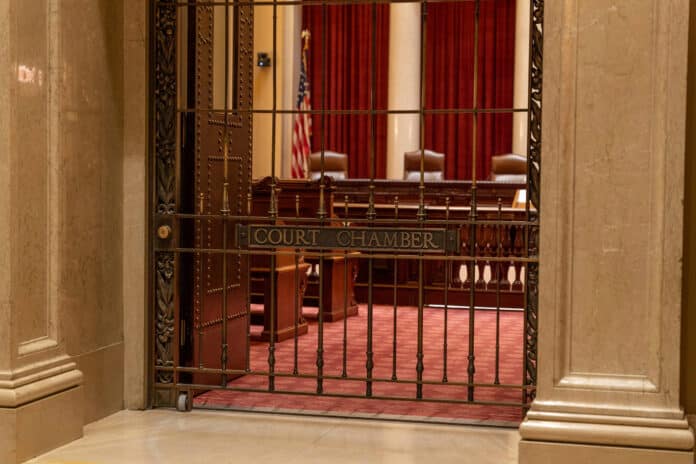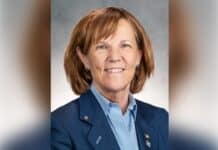Attorneys for Secretary of State Steve Simon and House DFL leadership made their case before the state’s top court on Thursday as co-petitioners in a lawsuit that claims House Republicans are unlawfully conducting business in the House of Representatives because they don’t have a quorum.
At issue before the Minnesota Supreme Court was whether the 67 Republicans who convened on the House floor last Tuesday constituted a quorum to transact business.
While Simon and DFL House leaders contended during their oral arguments before the Minnesota Supreme Court that the seat Curtis Johnson had told Gov. Tim Walz in December he would not fill is not really vacant, attorneys for GOP House leaders said the justices should leave infighting over what constitutes a quorum to the legislative body itself.
“The judicial power includes reviewing the validity of statutes,” Nicholas Nelson, an attorney representing GOP Reps. Lisa Demuth, Harry Niska and Paul Anderson, told the justices. “It does not include the legislature’s organization of itself or its leadership choices; that is a legislative power, which our constitution vests in the legislature, not the judiciary.”
“That is, of course, exactly the power that petitioners are asking this court to exercise here, in a way that is unprecedented in history.”
Attorneys representing DFL House leaders who filed the lawsuit last week asked the court to focus on the question of what constitutes a quorum in the current circumstances—where 67 Republicans have showed up daily on the House floor, 66 Democrats have continued their boycott, and one former DFL House member-elect, Curtis Johnson, has not professed to taking any oath of office.
“The existence of a quorum at some future time does not provide a remedy for the illegal conduct that has occurred to this point,” said David Zoll, an attorney representing DFL House leaders Melissa Hortman, Jamie Long and Athena Hollins.
In an amicus brief filed with the court, University of Minnesota law professor Ilan Wurman and the Upper Midwest Law Center spelled out why they think Republicans do have a quorum.
“A lawful quorum now exists in the Minnesota House of Representatives, and members of the minority party, in coordination with executive officials of this state, are effectively proroguing a legitimate session of the state house. The Court should reject such an assault on democracy,” they wrote.
Zoll argued that the state House is currently split at 67 Republicans to 67 Democrats, implying that an election certificate for Johnson was ruled valid in a separate case last week. Attorneys for the GOP House leaders rejected that notion.
One member of the court, Associate Justice Paul Thissen, questioned attorneys for both sides as to whether they believe there was a valid certificate of election issued for Johnson heading into the first day of the legislative session.
Thissen, who once served as a member of DFL House leadership with Hortman, did not recuse himself in the case. But one of his colleagues, Justice Karl Procaccini, a former general counsel for Gov. Walz, did recuse himself, as he did during another case earlier this month involving the state House where the court ruled in favor of the Republican Party of Minnesota. In that case, the court found that Walz illegally issued a writ of special election for the House District 40B seat that has been embroiled in controversy since last October.
The court made its decision just a little more than 48 hours following oral arguments in that case.
“We will take this matter under consideration and will issue our opinion in due course,” Chief Justice Natalie Hudson said Thursday before adjourning.
Hank Long
Hank Long is a journalism and communications professional whose writing career includes coverage of the Minnesota legislature, city and county governments and the commercial real estate industry. Hank received his undergraduate degree at the University of Minnesota, where he studied journalism, and his law degree at the University of St. Thomas. The Minnesota native lives in the Twin Cities with his wife and four children. His dream is to be around when the Vikings win the Super Bowl.











